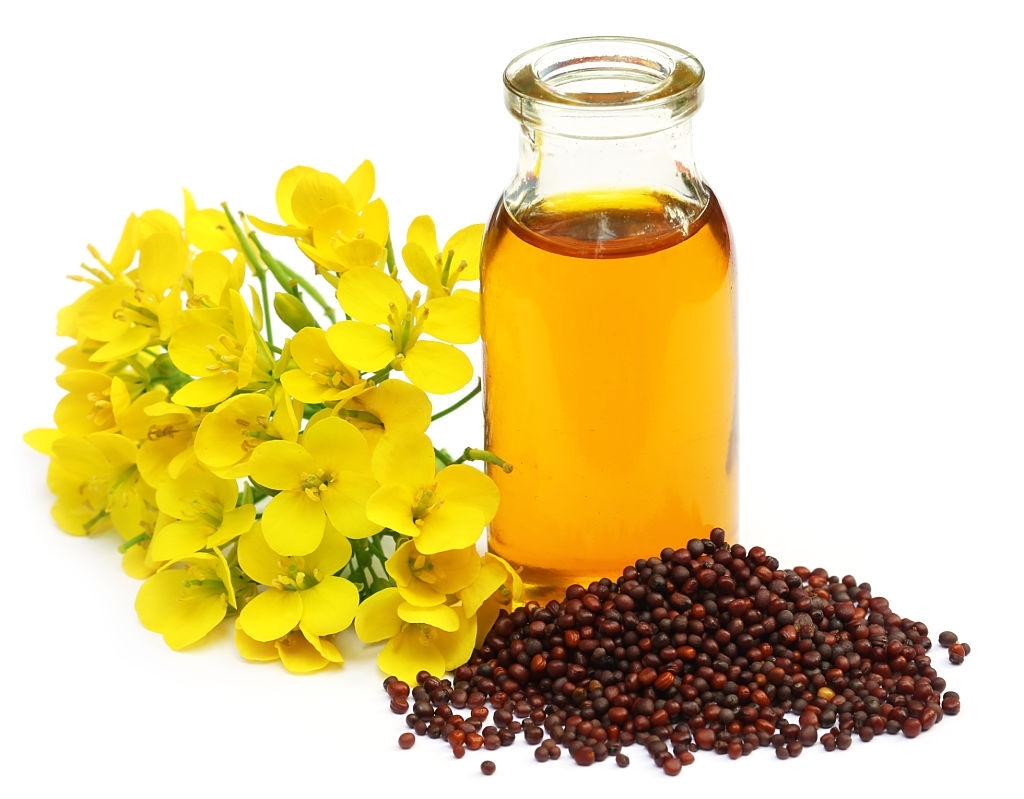- MOST RECENT
obzor (2455)

 10.09.2020
10.09.2020 We need to include a variety of food items in our diet that promote good health, growth, and sustenance. Every human has different nourishment requirements, but a few nutrients overlap the entire health spectrum.
Fats are crucial for maintaining a healthy body, and mustard oil is a source of fats and healthy fats at that one!

Mustard oil has a strong aroma and is considered a ‘strong’ oil variety due to its dominating flavour. Due to the mustard oil composition, it is very well suited to spicy Indian curries and is used widely across Indian households.
It is rich in MUFA, or monounsaturated fatty acids that are considered as good fats and help your body in fighting cardiovascular ailments. Moreover, mustard oil also exhibits anti-microbial properties due to the presence of glucosinolate that further enhances the health benefits of the oil.
If you look at a 100g sample for analysing mustard oil composition, around 20%-28% of it would be oleic acid, 10%-12% would be linoleic acid, 9%-9.5% linolenic acid and around 30%-40% erucic acid.
Although the jury is out on the long-term effects of erucic acid on the body, various studies published on the NCBI assert the importance of oleic acid, linolenic acid and linoleic acid.

Before we delve further into the mustard oil composition, let’s have a look at its nutrient profile sourced from FatSecret.
| Nutrient | Value Per 100g |
|---|---|
| Energy | 884 Kcal |
| Fats | 100g |
| Saturated Fats | 11.582g |
| Monounsaturated Fats | 59.187g |
| Polyunsaturated Fats | 21.21g |
| Carbohydrates | 0g |
| Fibre | 0g |
| Protein | 0g |
| Sodium | 0mg |
| Potassium | 0mg |
It must be clear from the above nutrient chart that mustard oil composition in terms of monounsaturated fats stands at 59.187g. As an NCBI study pointed out, these are the healthy fats that have numerous health benefits such as lowering the LDL cholesterols in the body and promoting cardiovascular health.
Another NCBI study stated that the linoleic acid in mustard oil is an omega-3 fatty acid that has anti-inflammatory properties and this has made mustard oil suitable for people suffering from arthritis induced joint pains.
The unique mustard oil composition results in a highly rich nutrition profile that has numerous health-promoting effects. However, these effects are highly dependent on the quality of mustard seeds that are used to obtain the oil.
Mustard grown using inorganic farming practices has been shown to exhibit traces of pesticides and harmful chemicals that are used by the cultivators to protect the crop as well as enhance the yield of their produce. These chemicals, if ingested can have a harmful impact on the human body.

The simpler and healthier route would be to opt for organic mustard oil. Organic mustard seeds are grown using sustainable farming practices that are in strict adherence to global farming standards and are guaranteed to be free from harmful chemicals and pesticides.
Moreover, opting for organic products also benefits the planet in the long run as the soil is detoxified due to the absence of harmful chemicals.
Now that we are aware of the mustard oil composition, here are a few nutritional facts pertaining to the health benefits of this healthy cooking oil.
Mustard oil composition sheds light on the higher content of MUFA & PUFA that is very beneficial for maintaining a healthy cardiovascular system. Moreover, its physical properties include a high boiling point that is on par with other fats which has led to its widespread use for frying purposes.
Just remember to opt for the organic mustard oil variety if you want to amplify the health benefits and fully take advantage of the rich mustard oil composition.
Try 24 Mantra Organics’s Mustard Oil and taste the goodness of organic.